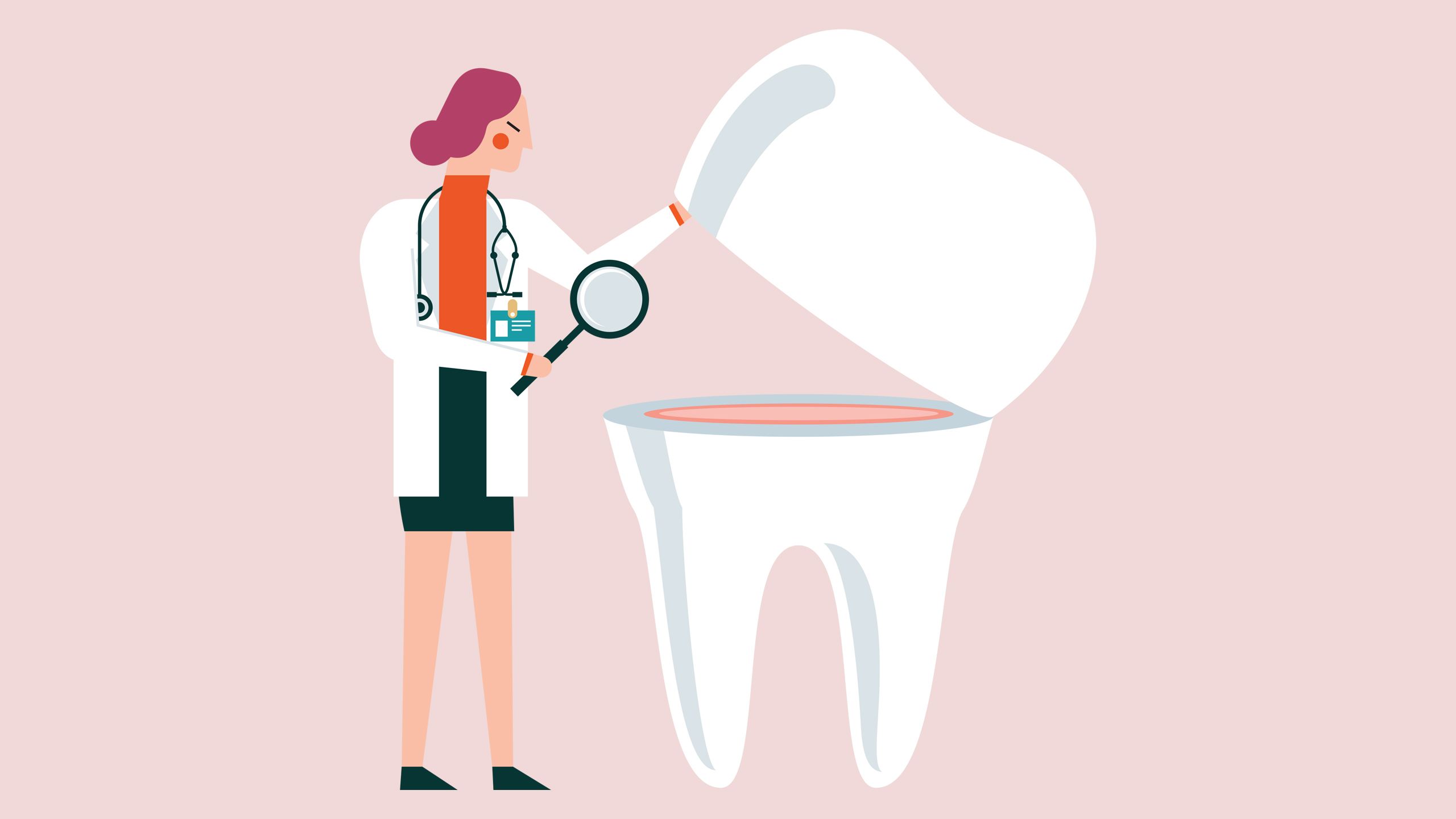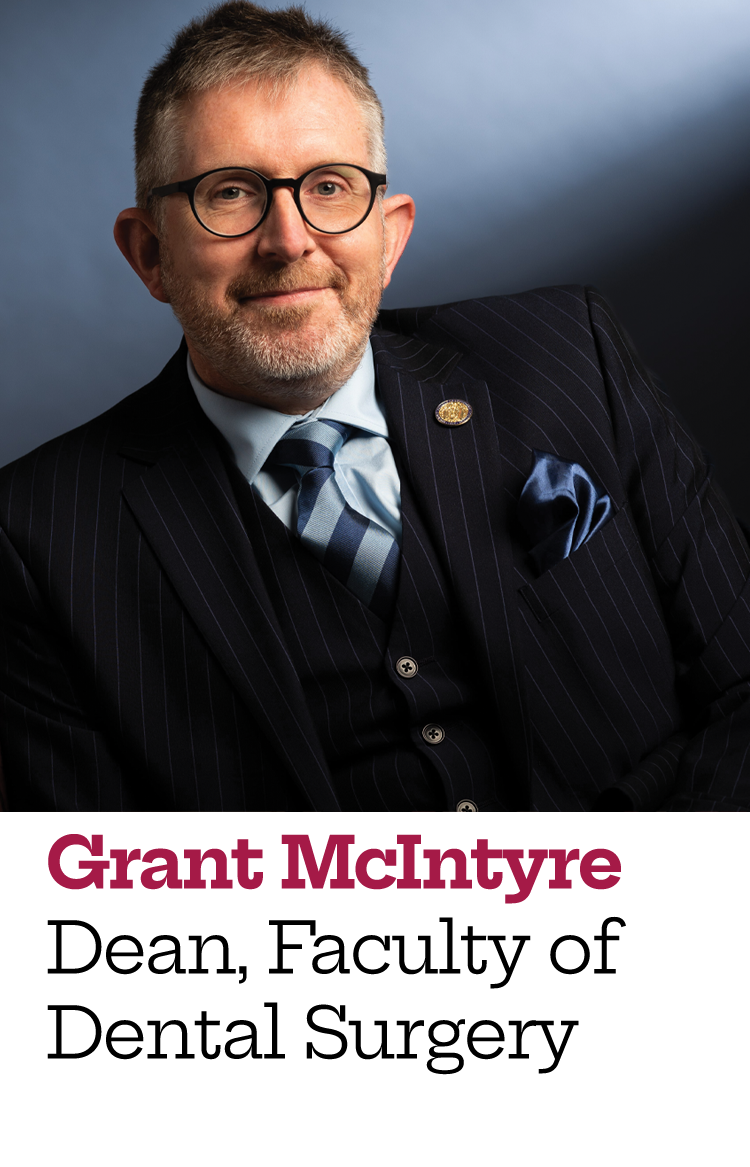Aiming high
is key
Grant McIntyre explores the new vision for dental specialty exams
Aiming high
is key
Grant McIntyre explores the new vision for dental specialty exams

In Michelle Obama’s memoir, Becoming, and her subsequent media interviews, she explained the rationale behind her now famous quote of ‘going high’ as the way to drive standards. Our Faculty of Dental Surgery has of course been at the forefront of standards long before Obama became a prominent figure. Standards have been a key part of our work since the Dental Council was formed in 1954 and the Faculty of Dental Surgery was born in 1982. In this edition of Surgeons’ News, we have an excellent article on p48 celebrating the Platinum Jubilee of the Dental Council and its highlights, including the continued upward spiral of standards over the last 70 years.
Standards are often talked about within postgraduate dental education and training, but what are standards and how are they defined? The dictionary definition is very simple, in that a standard is best described as ‘a level of quality or attainment’. Going back in history, the Royal College of Surgeons of Edinburgh has been involved in the assessment of standards since our inception in 1505, with dentistry being involved in the College from the beginning. While King James IV was the first dentist in the College, it is not clear if he would satisfy any of the modern-day standards both in terms of the procedural aspects of dental care or indeed his level of training and assessment.
HITTING HIGH STANDARDS
Standards are integral to everything we do within the Faculty of Dental Surgery, from examination and assessment to education and accreditation, examiner recruitment and membership of our advisory boards, Dental Council and Dental Executive, Office Bearers, governance, policy and advocacy. One of the many committees within the College is our Professional Standards Committee, which is an unsung hero, ensuring everything we do is governed by rigorous adherence to the highest-quality standards of the day. The Faculty is proud that we are currently the only UK Dental Faculty to meet all eight of the General Dental Council standards for specialty training.
This autumn heralds an enormous step change in dental education and training, with our College leading the way. Our Faculty, through the Joint Meeting of Dental Faculties, has been a key stakeholder in the development of the revised Dental Specialty Curricula for the 13 dental specialties, with many members of our Faculty being involved in the development of the pedagogical aspects through the Specialty Advisory Committees. At an early stage in developing the new assessment strategy, formative aspects of assessment were noted to be the responsibility of COPDEND, with the summative aspects being the responsibility of the Royal Colleges.
For the exams, we currently partner with the other UK and Irish colleges to deliver intercollegiate examinations for six specialties (Restorative Dentistry, Orthodontics, Paediatric Dentistry, Oral Surgery, Dental Public Health and Oral Medicine) through the Specialty Fellowships Examination Executive (SFEE), which is hosted by the Royal College of Physicians and Surgeons of Glasgow.
Specialty Membership examinations are delivered in two ways: first through the Tri-collegiate Specialty Membership Examination Executive (TSMEE, hosted by the RCSEd) for Special Care Dentistry, Oral Surgery and Paediatric Dentistry (on behalf of the other two UK colleges) and through our own very successful mono-collegiate examinations for Endodontics, Orthodontics, Periodontics and Prosthodontics. Completing the membership examination line-up are our other examinations: Membership in Oral and Maxillofacial Surgery, Membership in Advanced General Dental Surgery, Membership in Implant Dentistry and MFDS.
The facts speak for themselves. In 2023, we held examination diets in seven UK centres and 20 international centres, examined more than 2,000 candidates and in total ran 42 diets of our examinations. This growth will continue. Our MFDS examination is seeing a recovery in candidate numbers and we now have more than 1,000 candidates waiting for the Membership in Orthodontics examination.
THE RIGHT OPPORTUNITY
However, the General Dental Council and COPDEND indicated that, with the introduction of the new curricula, they were unhappy with candidates in the smaller dental specialties having two opportunities to sit specialty-level exams per year, with the larger specialties having four attempts per year across the different Colleges. They also preferred all the examinations to be at the same ‘standard’, and among the Colleges there was universal agreement at an early stage to make these at the level of Fellowship. In the background, we were notified by RCSEng and RCPSG that they wished to dissolve TSMEE and SFEE, with RCSEng and RCPSG proposing to work together on a new suite of dental specialty examinations either with or without the RCSEd.
As George Bernard Shaw once said: “Don’t wait for the right opportunity: create it.” And the Dental Council with the support of the wider College and, most importantly, Iain Forster-Smith, Director of Examinations, Education and Faculties, Mark Egan, Chief Executive Officer, Rowan Parks, President, and the College Office Bearer group, have been of immeasurable help in shaping the RCSEd vision for dental specialty examinations from September 2026 onwards. I am indebted to all for their healthy debate, discussion and diligence at and around Dental Council, particularly to Iain Forster-Smith for a vast amount of background work in articulating the view from the RCSEd that any further intercollegiate dental examinations need to meet our principles of standards, governance and finance.
In March 2024, the Dental Council (subsequently ratified by the College Council), agreed to work with our sister Colleges towards “establishing intercollegiate examination arrangements across the dental specialties, building on those intercollegiate arrangements that are already in place, subject to RCSEd standards as well as financial and governance arrangements being key principles at all strategic and operational stages. The RCSEd reserves the right to withdraw from this during the development process if these are not fulfilled to our satisfaction.” You might ask what does this change mean? The proposed examination model will involve a central secretariat with devolved delivery of examinations rotating round all three UK Colleges, but crucially each College will retain its own international footprint by using the bank of material developed through intercollegiate working. This mirrors surgical examinations in the RCSEd and is key to our global ambitions to maintain and develop standards everywhere we operate.
INEVITABLE CONERNS
The College recognises that this will be a period of change for all candidates, staff and examiners, and at the heart of the process are not only quality and standards but also staff and volunteer experience, financial stability and sustainability of examinations, for the smaller as well as the larger dental specialties. The intercollegiate nature of the workstream extends beyond the other Colleges to include the Specialist Advisory Committees, and external educationalist and representation from dental specialty trainees – a truly intercollegiate development. I appreciate that there will be apprehensions with any change; however, we are an innovative Faculty and College and lead from the front. The Dental Council and I want to hear any concerns from the Faculty membership – the comments so far have been very helpful in the intercollegiate discussions at ensuring the future roadmap works for all.
There is much work still to do, including development of a governance/steering group, a development group, examination boards, an assessment strategy for each specialty, transitional arrangements, regulations, curriculum mapping and blueprints, which will require input from many sources. I will update the Faculty and wider College as this important piece of work moves apace, with the Dental Examinations Committee, the College’s Examinations Committee, Professional Standards Committee, Office Bearers, Dental Council and Council all being kept appraised of developments.
I can reassure all Members and Fellows that governance, finance and, above all, standards are at the forefront of this innovative and exciting opportunity to improve the dental specialty landscape for trainees of today and tomorrow. Most importantly, we can assure our patients that the RCSEd is leading the way in the promotion of standards across dental specialty training in the UK and globally. I am sure Michelle Obama would approve of our continual drive to improve standards and George Bernard Shaw would be delighted that we are creating the right opportunities for the future of all specialty-level exams in dentistry.
Your views matter to me so feel free to email the Faculty inbox: dental@rcsed.ac.uk


